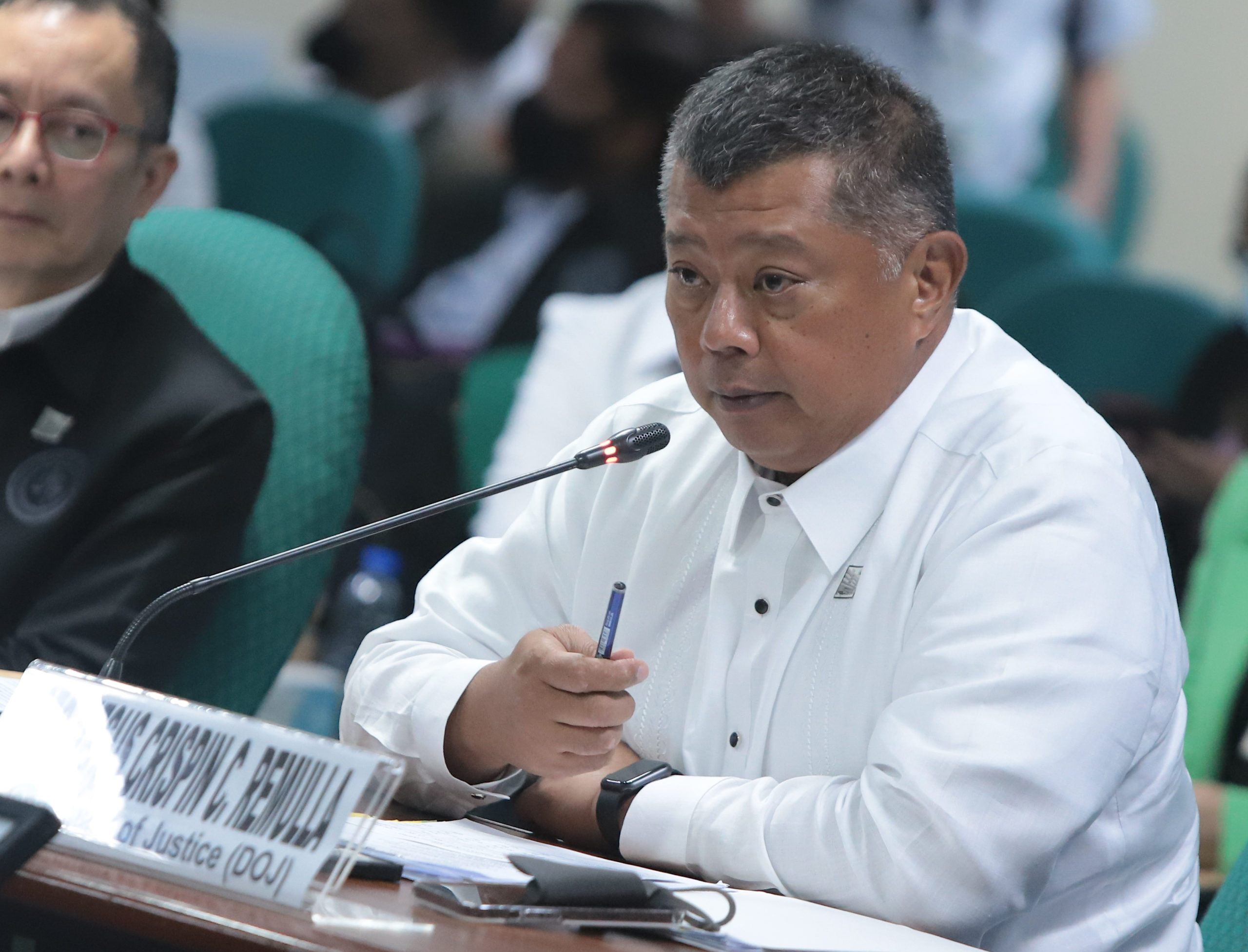China taking its ‘sweet time’ in deportation of its nationals, says Remulla

Justice Secretary Crispin Remulla. File photo / SENATE PRIB
MANILA, Philippines — China is taking its “sweet time” with the Philippines’ deportation procedures concerning arrested Chinese, Justice Secretary Jesus Crispin Remulla said.
Remulla explained that when deporting illegal aliens in the country, local authorities sought the assistance of other countries to verify the identities of deportees.
In the case of Chinese nationals caught working in illegal offshore gaming operations in the country, Remulla noted that many of them have no passports or identity documents.
READ: Some foreigners using ‘demanda me’ scheme to prevent deportation – Remulla
“So when we seek the assistance of the Peoples Republic of China for this, they don’t necessarily rush to our aid to document these people. They take their sweet time, sir,” Remulla said at a Senate hearing on Monday.
“Even if we request this, sometimes the words that they used are not very, very accommodating to our request,” he added.
Remulla even recalled getting a “negative comment” from officials of the Chinese embassy the last time he made such request.
“I found it very offensive when they spoke to me in that manner,” he said “That’s why I let the other officers handle the request with the embassy already because they are not very respectful of our country.”
He said China would only cooperate if they have people that they want to be arrested and immediately deported to their country.
But it is “very uncooperative” when it is the Philippines making the request for immediate deportation of Chinese nationals, Remulla lamented.
“So it’s really the hesitance of the Chinese government to be of real help to us. I think that itself is the problem,” he pointed out.
But Senate Minority Leader Aquilino “Koko” Pimentel III said the burden is still with local authorities who should have a record of every person going in and out of the country.
“Can we not use biometrics to trace who they are. Ang assumption natin nung pumasok yan, recorded dapat ang pasok ng mga yan [Our assumption is that when they entered the country, it should be recorded],” Pimentel said.
Immigration commissioner Norman Tansingco said there is biometric identification of Chinese visitors upon arrival but their identities could not be validated because they don’t provide their real names during confirmation process.
“Of course ang assumption kriminal nga ito e. Will he give his real name…? asked Pimentel.
“So there’s something wrong with our so-called computerized system. Medyo porma porma lang pala yan and then you can’t even match the fingerprint?” the senator added.
Tansingco reiterated they still need the confirmation of the Chinese government to see if the records of Chinese visitors match their data base.